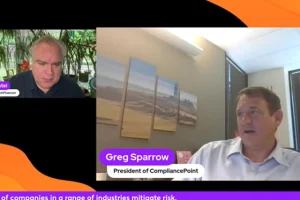Oklahoma Passes Its Own “Mini-TCPA” Law
It’s hard to believe it has been over a year since the U.S. Supreme Court rendered its Facebook, Inc. v. Duguid decision that significantly narrowed the definition of an automatic telephone dialing system (ATDS) under the Telephone Consumer Protection Act (TCPA). After years of inconsistent interpretations among Circuits that, at times, interpreted an ATDS quite broadly, the unanimous SCOTUS decision in Facebook was considered to be a huge win for the telemarketing industry as it would effectively limit the number of calls and texts in scope for TCPA enforcement. That feeling of relief was short lived, just months later Florida passed its more restrictive “mini-TCPA” that included more expansive “autodialer” language, leaving businesses who rely on automated telemarketing and texting as part of their customer engagement wondering whether other states would follow suit. It appears that’s the case, as other states are now passing bills with varying autodialer definitions. Oklahoma in particular seems to have stolen a page directly out of Florida’s playbook by recently passing a very similar law. While some provisions are verbatim to Florida’s law, the Oklahoma Telephone Solicitation Act of 2022 does contain some significant exemptions that will hopefully lessen the impact.
How the Oklahoma Law is Similar to Florida’s:
- Copies the Florida language banning a commercial telephonic sales call from being made if such call “involves an automated system for the selection OR dialing of telephone numbers or the playing of a recorded message,” without prior express written consent of the called party. On its face, this would be a more expansive definition of an autodialer than certainly the SCOTUS view in Facebook. It is noteworthy that Florida in fact revisited this provision and proposed a couple of amendments to “fix” it the last legislative session, one of which would have revised the “or” in the language to an “and,” so as to narrow the scope of the law. However, the legislative session ended without action on either of the amendments, so the law stands as initially written, at least until the upcoming July legislative session.
- Caps the number of solicitous commercial telephone solicitation calls on the same subject matter or issue regardless of the phone number used within a 24-hour period at three. Businesses would be well advised to err on the side of caution and interpret this provision broadly, as the intent could be to prevent businesses from calling 3 times about one product or service and 3 more times about a different product or service.
- Restricts commercial telephone solicitation calls to be between the hours of 8AM to 8PM.
- Contains the same Florida-like rebuttable presumption that a call to an Oklahoma area code is a call to an Oklahoma resident or a person within the state at the time of the call. Businesses are advised to not only implement compliance policies for numbers with an Oklahoma area code, but also for numbers associated with an Oklahoma street address.
- Allows for a private right of action with recovery of actual damages or $500 per violation, which is trebled to $1,500 for willful violations.
What Makes Oklahoma’s Law Unique
And now for the differences from the Florida law…and for the good news. There’s a whole host of exemptions…28 to be exact. Perhaps the most significant news is that calls to consumers with whom a business has an existing business relationship (EBR) or previous purchasers would be exempt. Other exemptions include, but are not limited to, businesses who engage in isolated/non-repeated transactions; religious, charitable, political, or educational businesses; those who make the major sales presentation and completes the sale at a later face-to-face meeting; securities, commodities, or investment brokers; newspaper solicitations; book, video, or record club or contractual plan or arrangements; supervised financial institutions; licensed insurance broker, agent, customer representative; services provided by a cable television system; some B2B sales; and there are several others.
The Oklahoma Telephone Solicitation Act will go into effect November 1, 2022.
Please reach out to us at connect@compliancepoint.com if you have any questions about telemarketing laws or how CompliancePoint can assist your organization with managing your marketing compliance.
Finding a credible expert with the appropriate background, expertise, and credentials can be difficult. CompliancePoint is here to help.





